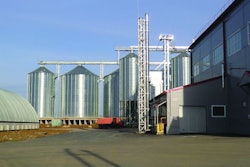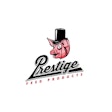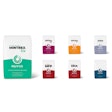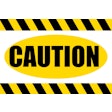Temporary measures and conditions enacted for animal feed manufacturers to support the supply of livestock feed and ingredients
The Canadian Food Inspection Agency (CFIA) has developed temporary measures and conditions to help the animal feed industry continue to maintain the supply of feed to livestock and protect animal health in light of supply chain issues that have been aggravated by border blockages.
The CFIA has developed the following temporary measures and conditions for feed manufacturers to support the continued supply of livestock feed.
For feeds that are typically exempt from registration:
- Feeds (complete feeds, supplements, macro-premixes) that are otherwise exempt from registration may be reformulated to below Table 4 minimums of the Feeds Regulations without needing to be registered.
- This will allow for substitutions or reductions in ingredients where sources are limited or to help conserve a feed manufacturer’s supply.
For registered standard feeds (complete feeds, supplements, premixes):
- Changes may be made to ingredients used in registered standard feeds to maintain the label guarantees without needing to advise the CFIA of these changes.
- This will allow for substitutions in ingredients where sources are limited.
- Changes may be made to nutrient levels in registered standard feeds resulting in guarantees that do not match the registered feed label without needing to advise the CFIA of these changes.
- These reductions may also go below Table 4 minimums.
For registered specialty feeds that are identified by the number 8 in the second digit of the registration number (for example, reg. #98xxx or reg. #18xxx):
- Changes may be made to ingredients used in registered specialty feeds to maintain the label guarantees without needing to advise the CFIA of these changes.
- This will allow for substitutions in ingredients where sources are limited.
- These substitutions should be limited to ingredients that serve the same purpose in the feed (for example, soybean meal substituted by canola meal and corn gluten meal, registered mineral complex substituted by another one).
In all cases, the temporary reformulation of feeds must:
- only use approved feed ingredients listed in Schedules IV or V of the Feeds Regulations, or registered feed products for the approved species or at the approved levels.
- be suitable for the intended purpose.
- not cause any undue safety or welfare risks to livestock.
- not exceed the maximum nutrient levels identified in Table 4 of the Feeds Regulations when fed as directed on the label to avoid any potential residues in foods of animal origin (meat, fish, milk and eggs).
- follow the Compendium of Medicating Ingredients or veterinary prescription for any medications.
- not exceed the maximum levels of contaminants as found in the RG-8 Regulatory Guidance: Contaminants in feed.
- comply with the Health of Animals Act and regulations and the Plant Protection Act and regulations.
Feed manufacturers are required to:
- inform customers receiving complete feeds formulated with nutrients below Table 4 of the Feeds Regulations (this can be done via the label or other documentation).
- maintain records demonstrating the temporary measure has been followed and may be subject to review during CFIA inspection.
For livestock feeds manufactured in in accordance with these temporary measures, CFIA feed inspectors will not issue corrective action requests (CARs) where:
- label guarantees are below the minimum levels identified in Table 4 of the Feeds Regulations.
- label guarantees of registered feeds are different from the approved label.
- ingredients listed on registered feeds are different from the approved label.
When these temporary measures are withdrawn, feed manufacturers will be required to:
- reformulate all feeds that were affected by the feed ingredient shortage:
- with guarantees that meet the requirements of Table 4 of the Feeds Regulations
- with ingredients and guarantees as approved in their registrations and
- update the labels for the affected feeds accordingly (return to using the labels as approved for registered feeds)
The CFIA’s Enforcement and Compliance Policy has always been to respond to non-compliance with fairness, impartiality and transparency. The CFIA will continue to do so with additional considerations specific to the current situation. While all requirements of the regulations will continue to apply, the CFIA wishes to assure industry that it will exercise its enforcement discretion in a flexible manner and will take into account challenges faced by the feed industry at this time.
This notice is in effect until further notice and will be revisited as the situation evolves. Questions or for any other urgent concerns related to the current situation should be sent to the CFIA’s Animal Feed and Veterinary Biologics Division at [email protected].















